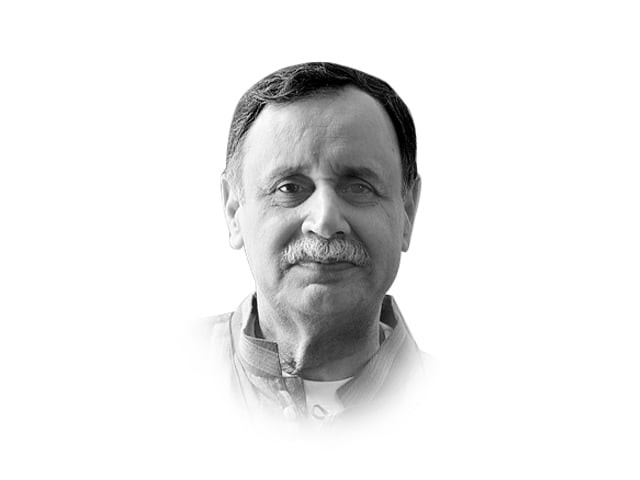A dialogue of the ordinary
There are at least seven critical aspects of governance that call for an urgent and collective response

When the engines of hate and hostility finally run out of their venomous steam; when all that is left behind is smouldering smoke and ashes; when we realise that we betted on horses who were running their own mindless race for power; when the last flickering candles of hope have been extinguished; and when we discover that we have come to the end of the road, it would dawn upon us that we are left with no one to curse or blame, except our own selves.
Heartbroken, exhausted and penniless, we have either arrived or would soon arrive at that dreaded destination. No amount of tears, regret, lament and blame would either provide a cure or a clue. Perhaps only then may we realise that a country cannot be built on hate and antagonism. Moving forward calls for a departure from the cacophony of the past and willingness to follow a scientific process of change and reform. It calls for our sane, thinking and rational citizens to come together. It requires us all to begin listening and talking to each other with humanity and humility. It requires us to agree on at least half a dozen basic essential reforms. It requires us to develop indigenous, creative and unconventional solutions. Finally it calls for agreeing on our weakest link — an effective new structure of governance.
There are at least seven critical aspects of governance that call for an urgent and collective response. These are:
a) Creating a national population organisation with a mandate and authority to urgently develop and implement actions to control the unsustainable and devastating population growth rate, aiming at a Total Fertility Rate (TFR) of no more than 2.0.
b) Stopping economic violence against 70 million workers who receive less than the minimum legal wage with no EOBI and no social security, and that must begin from the most oppressed professions such as sanitation workers, private security guards, mine workers and petrol pump employees.
c) Adopting modern digital methods to bypass mountains of ‘work impeding’ files and bureaucratic traps.
d) Introducing programmes that focus on increasing school enrolment using technology, incentives, better school governance and programmes like TCF and ‘Teach for Pakistan’.
e) Revamping FBR, taxing agriculture income and taking steps to reduce indirect taxes, while radically increasing the number of individuals and the amount they ought to pay in direct taxes and wealth tax. Doubling the duties and taxes on cigarettes and soft drinks, limiting the market hours till 6pm, eliminating import of luxury items, curbing inward smuggling of goods and outward flow of dollars are steps the government could implement to improve its sinking economy.
f) Military’s latest resolve to root out militancy must be fully supported by simultaneously launching massive nation-wide deweaponisation operations. Pakistan will never be a safe or stable with 43 million guns in the hands of militants, angry citizens, dacoit gangs and urban goons. We could learn much from the UK, Australia and New Zealand on buy-back of licensed and surrender of un-licensed weapons.
g) Much of Pakistan’s budget goes not in delivering any service but in pampering its own government officials via salaries, perks, pensions, offices, travel, entertainment, medical, vehicles, fuel and numerous other dubious allowances. It is best to close down many of our non-productive ministries and departments, while downsizing the rest to half. The 150,000 fuel-guzzling vehicles being used by government officials ought to be withdrawn and sold, with the amount deposited in the state exchequer. Likewise, the defence organisations could be asked to introduce major cost savings in their non-operational expenses.
No country is likely to arrive with maps and materials for the ‘Rebuild Pakistan’ project. Our rulers and rich elite, being the architects of this destruction, have neither the capacity nor the appetite to indulge in a reform process. Our only hope lies in the ordinary Pakistanis — to rise and initiate a dialogue for a new and progressive Pakistan.
Published in The Express Tribune, December 31st, 2022.
Like Opinion & Editorial on Facebook, follow @ETOpEd on Twitter to receive all updates on all our daily pieces.













COMMENTS
Comments are moderated and generally will be posted if they are on-topic and not abusive.
For more information, please see our Comments FAQ